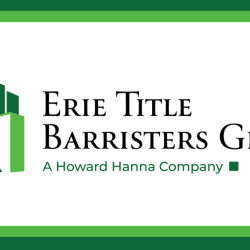Selling a home is one of the most significant financial and emotional decisions most people make. From staging and pricing to open houses and offers, there’s a lot to consider. But one crucial step that often catches sellers off guard is the home inspection.
If you’re preparing to sell your home, the buyer’s inspection is not just another step in the process—it can directly impact your timeline, sale price and even whether the deal closes at all. That’s why understanding how home inspections work, and how to prepare for them, is critical.
At Howard Hanna Real Estate Services, our agents work with sellers every day to help them anticipate, navigate, and benefit from the inspection process. In this comprehensive guide, we’ll walk you through everything you need to know about home inspections when you’re selling—from preparation and common findings to post-inspection negotiations and seller strategies.
What Is a Home Inspection and Why Is It Important for Sellers?
A home inspection is a professional evaluation of a property’s condition, typically conducted after the buyer and seller sign a purchase agreement but before final closing. The inspector, hired by the buyer, evaluates the home’s structure, systems and features to identify any potential problems.
The inspection covers areas such as:
- Foundation and basement
- Roof and attic
- Electrical and plumbing systems
- HVAC (heating and cooling)
- Appliances (if included)
- Windows and doors
- Safety concerns (mold, radon, smoke detectors, etc.)
While the home inspection is initiated by the buyer, its findings can have serious implications for the seller. These include:
- Price renegotiations
- Repair requests
- Closing delays
- Potential deal cancellations
That’s why Howard Hanna’s agents are trained to guide sellers through this phase with clarity and confidence. Our role is to help you avoid surprises, prepare strategically and come to the negotiating table informed and supported.
Why You Should Consider a Prelisting Inspection
Many sellers are choosing to take control of the inspection process with a prelisting inspection—a professional inspection done before the home hits the market.
Benefits of a Prelisting Inspection Include:
- Identifying issues early, so you can repair or disclose them before buyers get involved
- Pricing your home more accurately, based on its real condition
- Creating buyer trust and reducing last-minute surprises
- Avoiding delays by resolving problems before negotiations begin
Some sellers worry about uncovering issues, but the truth is: problems don’t go away just because you ignore them. Taking the initiative puts you in the driver’s seat and can even help your home sell faster.
Talk to your Howard Hanna agent about whether a prelisting inspection is right for your property, especially if it’s an older home or hasn’t been updated recently.
What Inspectors Look For (And What Buyers Care About)
Understanding what home inspectors look for can help you prepare in advance. Here are the primary components of a standard inspection:
- Structural Integrity
Inspectors will examine the foundation, walls and framing for a variety of issues. These issues can be things such as cracks, shifting and signs of water damage. Structural concerns are among the most serious red flags for buyers.
- Roof Condition
They’ll look for missing shingles, leaks, flashing damage and gutter performance. If your roof is nearing the end of its life, it may come up in negotiations.
- Electrical System
Outdated wiring, lack of GFCI outlets, overloaded panels or code violations are commonly flagged. Inspectors will check for safety and functionality.
- Plumbing
Leaks, water pressure problems and the type of piping (e.g., galvanized, copper, PEX) are all evaluated. Plumbing issues can lead to mold or damage if not addressed.
- HVAC
Heating and cooling systems are checked for age, performance, cleanliness and maintenance. A neglected furnace or aging AC unit may concern buyers.
- Appliances
Any included appliances (stove, dishwasher, washer/dryer) are checked for proper function.
- Safety and Code
Inspectors also assess whether your home complies with safety codes, including:
- Smoke and CO detectors
- Handrails and guardrails
- Electrical grounding
- Egress windows in basements
Knowing what to expect gives you a head start on avoiding common inspection deal-breakers.
How to Prepare Your Home for the Buyer’s Inspection
A successful home inspection starts with a well-prepared home. Here’s a checklist to help you get inspection-ready:
Clean the House
It might seem superficial, but a clean home gives the impression of care and maintenance. It helps inspectors and buyers feel more confident in your property.
Provide Full Access
Ensure that the inspector can easily access:
- Attic and crawl space
- Electrical panel
- Water heater
- Furnace/boiler
- Garage and storage rooms
Unlock gates, doors and utility closets before you leave.
Test All Fixtures and Systems
Before the inspection:
- Replace HVAC filters
- Test all light switches, outlets and smoke detectors
- Check that sinks drain quickly and toilets flush properly
- Run the dishwasher, oven and any other appliances
Complete Minor Repairs
Take care of simple issues, like:
- Leaky faucets
- Cracked tiles
- Missing outlet covers
- Loose doorknobs or hinges
- Caulk around tubs and sinks
Document Your Maintenance History
Provide receipts for:
- Roof or HVAC repairs
- Termite treatments
- Water damage remediation
- Renovations or permits
Buyers feel more confident when they see a history of regular care.
Leave the Home During the Inspection
Inspections typically take two to four hours. Plan to leave the house to give the buyer and inspector space to complete their work without distraction. Make sure to take your pets with you.
What Happens After the Home Inspection?
Once the inspection is completed, the buyer will receive a report—usually within 24 hours. The report will detail the findings and may include photos, notes and repair suggestions.
Here are the three most common outcomes:
- No Major Issues – Sale Moves Forward
If the inspection reveals no serious concerns, the buyer may move forward without making demands or changes.
- Buyer Requests Repairs or Credits
More often, the buyer will request that you:
- Complete certain repairs before closing
- Offer a credit at closing to cover repair costs
- Reduce the purchase price
- Buyer Terminates the Deal
If major problems are uncovered, or the buyer feels overwhelmed by the repair list, they may choose to back out—especially if the contract includes an inspection contingency.
Your Howard Hanna agent will guide you through the post-inspection negotiations, helping you protect your interests while keeping the deal alive.
Negotiation Tips for Sellers After a Home Inspection
- Don’t Take It Personally
Buyers aren’t trying to insult your home—they’re just trying to protect their investment. Keep a cool head and approach negotiations pragmatically.
- Focus on Health, Safety, and Functionality
Buyers are usually most concerned with major systems, safety hazards and expensive repairs. You don’t need to fix cosmetic issues, but be prepared to address:
- Roof leaks
- Electrical code issues
- Plumbing failures
- Mold or water intrusion
- Offer a Credit Instead of Repairs
If you’re short on time or unsure about finding a contractor, you can offer a credit to the buyer at closing. This gives them the flexibility to make repairs after they take ownership.
- Be Prepared to Walk Away
If the buyer’s demands are excessive or unreasonable, and you have other interested parties or the market is strong, you might consider moving on. Your agent can help you weigh the pros and cons.
How Howard Hanna Helps Sellers Through the Home Inspection Process
At Howard Hanna, we understand that the inspection process can be stressful for sellers—but it doesn’t have to be. Our agents offer full-service support and deep local expertise to help you stay ahead of potential obstacles.
With Howard Hanna, you get:
- Prelisting consultations to identify and address potential red flags
- Access to trusted contractors and service providers
- Market-based repair advice to help you decide what’s worth fixing
- Skilled negotiation support to handle inspection-related requests
- Exclusive programs that build buyer trust and confidence
Plus, we offer value-boosting services such as:
- The 100% Money Back Guarantee*
- The Buy Before You Sell program, giving you flexibility in your next move
- Industry-leading Hanna HomeFinder tools for serious buyer traffic
(*In select markets. Speak with your agent for availability.)
Frequently Asked Questions (FAQ)
Q: Do I have to fix everything in the inspection report?
A: No. You’re not obligated to fix every item, but your willingness to address major issues can help you keep the sale on track.
Q: Can the buyer back out after an inspection?
A: If the contract includes an inspection contingency, yes. However, with the right approach, many concerns can be resolved through negotiation.
Q: Should I get my own inspection?
A: A prelisting inspection is a smart move for many sellers. It reduces surprises and helps you prepare your home—and your price—accordingly.
Q: How long does a home inspection take?
A: Inspections typically last two to four hours, depending on the size and condition of the property.
Final Thoughts: Be Prepared, Stay Flexible, and Work with the Right Agent
The home inspection is not a hurdle—it’s an opportunity. With proper preparation, realistic expectations, and a qualified agent from Howard Hanna on your side, you can turn the inspection process into a tool for building trust, resolving concerns and closing your sale smoothly.
We believe in helping sellers stay informed and empowered every step of the way. Whether it’s navigating the market, prepping your property, or negotiating post-inspection, Howard Hanna agents bring the local knowledge, national strength and personalized service you need to succeed.
Ready to sell your home with confidence? Contact Howard Hanna today to speak with a real estate professional near you. Let’s make your next move a successful one.










